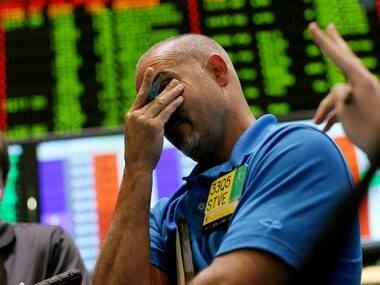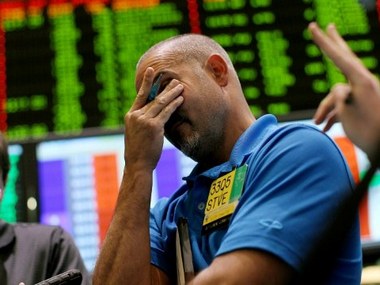Oil prices crashed in the international markets after the International Energy Agency (IEA) announced the release of 60 million barrels of government-held crude oil over the next 30 days. The release by the group of 28 countries-largely consumer countries-barely covers 16 hours of world’s consumption-daily consumption of crude oil in the world is 87.5 million barrels. This, however, was enough to push the price down by over 4% on Thursday.
[caption id=“attachment_31115” align=“alignleft” width=“380” caption=“Analysts view this move by the IEA more as a symbolic attempt to rebuke the OPEC. Platt/Getty Images/AFP”]
 [/caption]
[/caption]
Analysts view this move by the IEA more as a symbolic attempt to rebuke the Organization of the Petroleum Exporting Countries (OPEC), which had earlier resisted an attempt to increase supplies. Oil price slide was arrested on Friday with oil trading in the positive zone in the early hours of the day.
The move by the IEA has largely been criticised by traders and industry lobbies, but developing countries waging a war on inflation have welcomed the move. “Our reserve is intended to address true emergencies, not politically inconvenient high prices,” said Karen Harbet, CEO of the US Chamber of Commerce Energy Institute. “Unrest in the Middle East is likely to continue for quite some time, so a temporary increase in supply is not a substitute for a long-term fix,” she said in response to a White House official statement that the move was in response to an oil supply shortage.
The uprising in Libya has taken 1.5 million barrels of oil per day off the market while the move by the IEA has added 2 million barrel per day for the next 30 days.
Analysts feel the move by the IEA will be counter-productive as it will be seen as OPEC’s reluctance in stepping up production. Many analysts were expecting OPEC to increase production earlier this month in response to the Libyan shortfall, but a decision to do so could not be reached. Though Saudi Arabia said after the meeting that it will raise output to 10 million barrel in July from 8.8 million barrel in May, not many are hopeful. Analysts point out that Saudi Arabia has not been able to supply more than 9.5 million barrel since February 1982.
Oil prices are already sliding after Federal Reserve Chairman Ben Bernanke put out a grim assessment of the economy. The announcement to release oil from government reserves added to the fall. The general impression is that the ‘artificial’ attempt to push price down was to help the US and European struggling economies.
Experts at Deutsche Bank point out that IEA’s move is a risky one and it interferes with a muddied situation that involves a number of components. Deutsche calls it a risky move since it is a short-term fix to a problem with many long-term components. This cannot go on for long as eventually paying a higher price for the commodity may be inevitable. Fundamentally, tighter markets will force the IEA to surrender to higher prices, Deutsche said.
Indian stock markets bounced back strongly on Friday on the back of declining oil prices and easing of the Greece crisis. If analysts are to be believed, oil prices will rise again, unless demand eases due to a slowdown. As for the Greece crisis, an opinion poll suggests that the Opposition, which is refusing to support the austerity plan, has the backing of three-fourths of the population opposed to a string of tax hikes and spending cuts. In short, the sharp rise of 500 points on the BSE Sensex was only a relief rally.
)